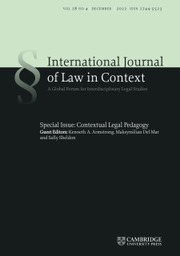Responsibility and Control
This book provides a comprehensive, systematic theory of moral responsibility. The authors explore the conditions under which individuals are morally responsible for actions, omissions, consequences, and emotions. The leading idea in the book is that moral responsibility is based on 'guidance control'. This control has two components: the mechanism that issues in the relevant behavior must be the agent's own mechanism, and it must be appropriately responsive to reasons. The book develops an account of both components. The authors go on to offer a sustained defense of the thesis that moral responsibility is compatible with causal determinism.
- Systematic and comprehensive account of moral responsibility
- Broad interdisciplinary appeal across philosophy, legal theory, and religious studies
Reviews & endorsements
' … the most likely sophisticated of its kind to date and is likely to have considerable influence on future philosophical discussions of both moral and legal responsibility.' The Times Literary Supplement
Product details
January 2000Paperback
9780521775793
288 pages
229 × 153 × 17 mm
0.4kg
Available
Table of Contents
- Acknowledgements
- 1. Moral responsibility: the concepts and challenges
- 2. Moral responsibility for actions: weak reasons-responsiveness
- 3. Moral responsibility for actions: moderate reasons-responsiveness
- 4. Responsibility for consequences
- 5. Responsibility for omissions
- 6. The direct argument for incompatibilism
- 7. Responsibility and history
- 8. Taking responsibility
- 9. Conclusion
- Bibliography.








